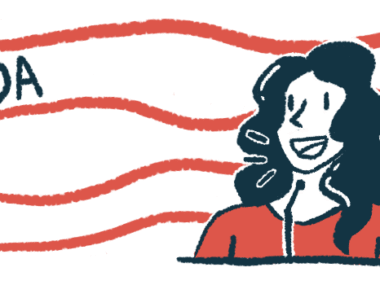Transforming Frustration With CMT Into Learning
Written by |

There is a common game that children play, although I’m not aware of an official name for it. The game is pretty simple and involves two players. Player one presents a fist to player two and holds it as tightly as possible. Player two then tries to pry each finger loose. The game ends if player two gives up or if player one has no choice but to surrender.
I remember playing this game. In middle school, my classmates and I would entertain ourselves with it during bus rides home. And while I was never the best at it, I did OK. But if I were to play that game today, I’m not sure I’d be able to beat even middle school me.
When I look at my hands now, I think they should belong to someone much older. My symptoms of Charcot-Marie-Tooth disease (CMT) are robbing me of a sense of strength and ability during what should be my prime years.
It’s a sinking feeling of loss and a seemingly insurmountable obstacle. Unlike many other obstacles, the symptoms of CMT can’t be eliminated with practice and experience, at least not in the manner I might hope for. I wish I could simply obliterate my physical weaknesses due to CMT.
It would be nice if, after my gym workouts and personal trainer sessions, I’d see the muscles in my ankles and hands respond a little faster. Or if I could perform a tai chi walk as easily as I could when I was in grade school. I believe I’m trying my best, but despite my efforts, my body seems to come up short of my expectations.
Yet instead of viewing all of these shortcomings as outright failures, perhaps there’s a more productive way of looking at the dynamic of managing a body that sometimes frustrates. A friend and I discussed this topic recently after reading an interesting article in The Atlantic titled “What It’s Like to Get Worse at Something.”
Everyone, able-bodied or not, experiences disappointment with our bodies. We may all reach a certain age when we think back fondly about the times our bodies were stronger. Maybe I don’t need to view every moment my body comes up short as a failure.
Although it may not be any less frustrating, perhaps it’s at least more useful to look at such moments of struggle as simply a learning process. Perhaps it’s worth recontextualizing some of the things I may instinctively think of as failures as simply steps toward growth. I can learn to pick myself up and discover new ways of doing things that will better serve me in the future.
Regarding not feeling strong or capable, it’s worth remembering that there are different kinds of strength, and some are more important than physical strength.
It’s important for all of us with CMT to be kinder to ourselves and less self-critical. I know that if I witnessed someone with the audacity to call my friends with CMT weak or incapable, I’d be fuming. So why do I allow myself to undertake such self-loathing?
Ultimately, maybe the entire concept of prime years is flawed. We each have untapped potential at every age. Besides, even if I could regain my old grip strength from middle school, I’m more than happy to leave those awkward years of puberty in the past.
Note: Charcot-Marie-Tooth News is strictly a news and information website about the disease. It does not provide medical advice, diagnosis, or treatment. This content is not intended to be a substitute for professional medical advice, diagnosis, or treatment. Always seek the advice of your physician or other qualified health provider with any questions you may have regarding a medical condition. Never disregard professional medical advice or delay in seeking it because of something you have read on this website. The opinions expressed in this column are not those of Charcot-Marie-Tooth News or its parent company, Bionews Services, and are intended to spark discussion about issues pertaining to Charcot-Marie-Tooth.







Rosemary Zaborny
Regarding your statement about not feeling strong or capable I can relate to that. I am 83 and was just recently diagnosed with CMT of my left foot. I knew I had some sort of a problem with my foot but didn't find out what it was till after a few falls. My primary care dr. had me go to a physical therapist. He knew within a very short time what my problem was. I couldn't lift the front of my left foot. He suggested I see a neurologist which I did. I am now wearing an orthotic and try different ways to help myself perform some household chores. I told myself I have to find ways to adjust and not get discouraged.Thank you for this article.